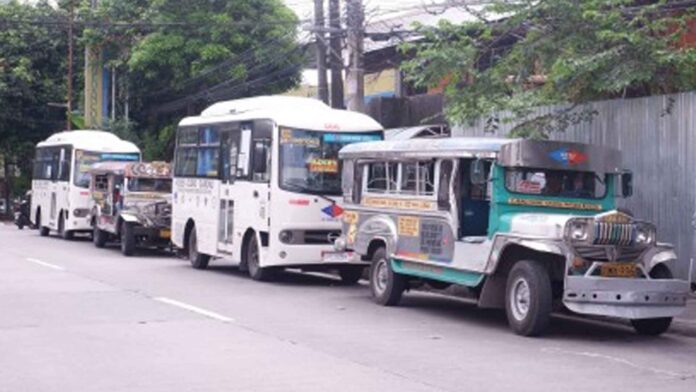The Department of Transportation (DOTr) is actively pursuing possible expansion of on-going service contracting with the public transportation sector to meet the commuting public’s demand for a sufficient supply of safe public utility vehicles (PUVs) once Metro Manila is lifted from modified enhanced community quarantine (MECQ).
With government placing Metro Manila and the provinces of Bulacan, Cavite, Laguna and Rizal back under MECQ, mass public transportation, including taxis and TVNS, have been prohibited. However, use of private vehicles, Active Transport (AT) such as bikes or personal mobility devices (PMDs), and service contract arrangements are highly encouraged for any essential travel.
“Amid the current need to reinforce stricter safety protocols especially on our public transportation, service contracting in transportation is one of our safest bet to ensure effective and continuous service for our commuters,” said DOTr Assistant Secretary for Road Sector Mark Steven Pastor. “This will also provide extra income for affected drivers and operators and help them transition once the protocols are lifted.”
In the finalization of the stimulus bill 1564 or the “Bayanihan to Recover as One Act”, DOTr has proposed to Senate for service contracting of public transport to be included in the budget allocation for the transport sector.
“Prior to the declaration of MECQ, the DOTr, along with its attached agencies, have been in discussion with the Department of Budget and Management (DBM) and the National Economic Development Authority (NEDA) on the possibility of allocating budget for contract service arrangements with public transport operators,” said Land Transportation Franchising and Regulatory Board (LTFRB) Chairman Martin Delgra III.
“We will continue to discuss and explore the implementation of the service contracting. We are hoping for its swift resumption and expansion, especially given the success of our previous contract service arrangement along EDSA,” Delgra added.
From June 1 to July 29, the DOTr has implemented service contracting in its MRT-3 Bus Augmentation Program in order to help address the decrease in MRT-3’s capacity due to strict observance of physical distancing.
“The 90 buses deployed by government, through service contracting, for the MRT-3 Bus Augmentation Program has been proven effective. We have received numerous positive feedback from commuters who benefitted from the program. In fact, we have serviced around 400,000 passengers since June 1 with the Bus Augmentation Program, and we are aiming to expand the same scheme in other routes and transport modes to better service our commuting public,” Chairman Delgra said.
Under a service contracting system, government will pay operators and drivers of buses and public transport units a per kilometer fee rather than the number of passengers being serviced.
“The benefit of having service contracting arrangements is that commuters and passengers are assured of rides at a fixed schedule,” said Pastor. “Since DOTr will pay them based on the number of kilometers they were able to run, they will leave the station on schedule, whether full or not, thereby eliminating longer waiting times and offering shorter travel time for passengers.”
As for other concerns of the commuting sector, the DOTr has also included plans for designated bike lanes and other modes of Active Transport, as well as other health-related schemes such as imposing cashless transactions among public transport and the full implementation of the PUV modernization program. The agency is also in coordination with transport groups for the improvement of the EDSA busway scheme.
“Reiterating the call of government for strict lockdown protocols, the transportation sector will also be reassessing implemented safety measures among mass public transportation. In the meantime, we encourage everyone to observe existing riding protocols and guidelines provided by the Inter-Agency Task Force,” said Pastor.
Under MECQ, only dedicated shuttles for frontliners and company workers under allowed industries will be permitted to travel subject to strict health and safety protocols. Buses, jeepneys, taxis, trains, on the other hand, are prohibited.
“The DOTr is one with the call for a commuter-centric public transport system. Rest assured that while we are under stricter lockdown, the government is also discussing the resumption of public transport to enable the full movement of businesses and commuters to push for economic recovery,” concludes Pastor.
Photo Credit: www.pna.gov.ph





